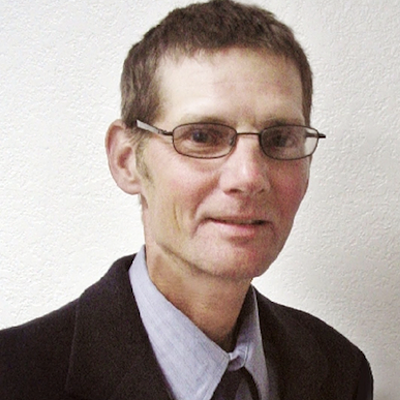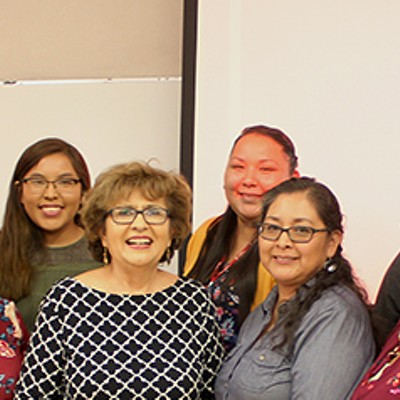Over the last seven years, tribal leadership--with some justification--has chosen to blame the federal government for its border-related woes and has sought to receive financial compensation, thereby distracting everyone from the fact that it still refuses to put out water stations or support those who would do it themselves. And as social-justice advocates make clear, the Tohono O'odham do have a choice. They are simply making the wrong one.
In early September, Veronica Harvey, the tribe's Baboquivari District chair, ordered tribal law enforcement to remove three water stations maintained by Mike Wilson, an O'odham social-justice activist. The confiscation of Wilson's water stations should have provoked harsh condemnation from Chairman Ned Norris Jr. Norris could have made the case that migrant deaths affect all O'odham. Instead, Norris supported Harvey's authority to take such actions on the grounds that the "tribal Constitution authorizes each district to govern themselves on issues of local concern." The burning question is: Why?
It's difficult to know exactly why the tribal council has squandered its moral authority and refused to support water stations. Perhaps, as critics of the council like Mike Wilson have said, putting out water might upset the federal government's policy of militarizing the border. After all, the federal government still controls a significant portion of the O'odham budget. It stands to reason that the nation's politicians wouldn't want to bite the hand that feeds them.
What is clear is that tribal leadership still accepts the claim that putting out water for migrants actually draws them into the desert and would bring more of them onto the reservation at precisely the time the O'odham--and the federal government--want to lower their numbers. Not surprisingly, social-justice organizations strongly dispute this claim and offer evidence that water stations do not attract migrants.
Finally, there is the question of whether allowing outside humanitarian groups on O'odham land would affect the nation's cultural sovereignty: Wouldn't this be just another case of the outside world telling the O'odham how to run their own affairs?
Historically, Native Americans have every right to be suspicious of outside influences over their lives, and the O'odham are no exception--especially given the magnitude of the federal government's failure at the border. However, the actions of the Baboquivari District were taken against Mike Wilson, a tribal member who is practicing the longstanding O'odham tradition of offering assistance to strangers. This is not a case of putting O'odham culture and heritage at risk; it's a case of refusing Wilson the right to act within his own values.
What the tribal government should do is consider embracing migrant deaths as a tribal-level issue that affects the entire nation. Such a rhetorical shift does not require the nation to permit water-station groups like Humane Borders onto the reservation. Instead, it would simply allow Wilson and other O'odham to act on their traditional values without fear of retribution.
Surely, tribal politicians understand the game of fear and retribution. They have every reason to fret about the kinds of games the federal government could play with them if they were to allow a wide humanitarian presence on their reservation. The cost may simply be too high for the O'odham to consider--but punishing Wilson and any other O'odham who wish to act within tradition is a moral failure, particularly when such restrictions are unwarranted.
The tribal leadership still has a choice to accept its moral responsibility for migrant deaths. By embracing this issue at the tribal level, they would be taking a measured and morally consistent step in the right direction.










